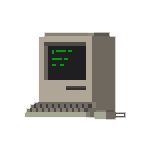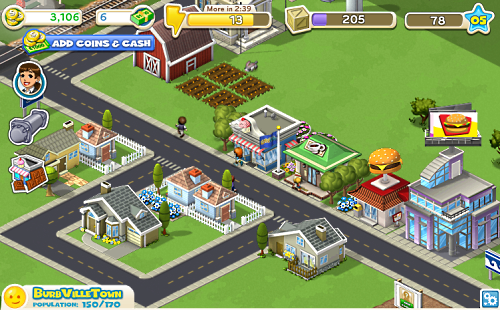Hackday: The Deploy Button
Squarespace is one of those companies dedicated to crafting beautiful tools to enable creative expression. So, there is plenty of encouragement to build cool stuff, and the company even throws whole-day "Hackdays" where the product/engineering team can experiment with ideas.
Since we push improvements and bug fixes to Squarespace on a daily basis, I declared to the others that it'd be awesome to have an actual glowing red button that we could hit to deploy the code. Plenty of chuckles went around the room, but my intrepid colleague Jonathan Beluch thought so too and so it came to be: we got into hack-mode and combined forces to build this project over the course of a day that involved a lot of burritos, lots of caffeine, and horsin' around.
We used an old cigar box, the Arduino, and a bunch of components purchased from Sparkfun and Amazon. The button is protected by two key switches and a toggle switch that must all be in the ON position for the button to light up and be "armed".
Ingredients:
- One Arduino Uno
- One Arduino Ethernet shield
- One old cigar box from OK Cigar in SoHo
- One can spray paint, black from Blick
- Two key switches
- One toggle switch with red missile cover
- One breadboard
- One TIP120 transistor (to control the red button's light)
- Some 100 ohm and 10K ohm resistors.
- One ethernet cord
- Lots of wires
IBM Selectric typewriter ad
Old ads are so fucking weird.
This one is an ad for the legendary IBM Selectric.
Which reminds me... I'm gonna dust off my Model M and bring it to work. Sick of Apple's slick piece of shit keyboard. It might be pretty but it's not practical as a typing machine; probably because Steve Jobs wasn't a programmer typing away all day.
Paper for the iPad
Amazing. Maybe I'll quit dragging around a sketchbook and pencil and just use this. Maybe. I'll install this one soon.
So far, nothing has exceeded the low-tech solution. No matter how many times I try fancy apps like Evernote or whatever, I always forget them and fall back to the good ol moleskine. They're just too much work:
Flip open iPad. Turn it on. Look for the icon; fuck, It's on the third screen. Swipe over. Locate notetaking app. Wait for it to load. Push a few buttons to create a new post or a new page, push a few more to get the pen or text, then I can finally start typing. The idea might've flown away by that point!
Loopt, Gowalla slain. Foursquare to follow.
Loopt is gone. Acquired, but really, it just failed. Honestly I've been a huge pessimist of all the "location-based social services" and I predict that Foursquare is going to go a similar route unless it essentially morphs into something else. People tell me "oh well naysayers like you said the same thing about Twitter! And look at Twitter now!!!1one".
But there's a huge fundamental difference between Twitter and these services:
Checkins are just not interesting.
Meaning, I can't read a list of checkins and find it valuable whatsoever. They're just dry GPS coordinates with a little bit of context about people I don't know or care about.
On the other hand, I can read tweets all day long because they're often packed with amusing comments, important news, or links to an even richer medium: blog posts. Twitter is your "what's new on the web" feed, displacing RSS and newsletters and other ways to ping you. Moral of the story: because Tweets are actually fun to consume, Twitter will enjoy longevity as a medium.
re: inventing on principle
So what's really impressive about this is actually not any technical feat but his observations and ingenuity.
When he points out: "creators need a direct connection to what they're making" (versus "working blind")
It's one of those things we hardly notice in our day-to-day because we take the status quo for granted. Just look around and see how much shit is broken in this regard.
To be on the right side of his principle, there are two parts: the immediate feedback and the direct input.
- Feedback. When working blind, it's so much harder to discover things... it's almost impossible to stumble into things by accident. Look at the way he tweaks a couple parameters and discovers a new game concept game based on gravity. These ideas are all over the place and the rate at which you discover them is directly proportional to the rate at which you can experiment.
- Direct input. You should be able to make things as fast as you can think them. In his example he uses his hand for animating and the result is 10x faster. It's effective because that's what you wish you could use in the first place; clicking around buttons with your mouse and adjusting some keyframes is an indirect way to achieve what the hand does best: precise motion.
So here's a question: What if musical composition programs were redesigned with this in mind? You could use your own voice as an input to musical composition, using it to put in a sequence of relative pitches and control timing.
After all, the voice is the most "native" instrument to us.
The Biggest Lottery
What's interesting is that the lottery creates a 'pyramid' structure, and the pyramid is expanding. The greater the accessibility, reach, and scale of top tier talent (be it in music, art, tech, whatever), the tougher it is for the low end to scrape by. Technology magnifies marginal differences in performance and the result is that local production is not competitive; second place winners are dead, but the first-place prize is larger than ever.
A highway links a town to the nation, and a local baker is snuffed out. He bags scones at Starbucks now. He was member of a middle class once sheltered by inefficiency, now completely exposed. Ironically, a niche still exists which caters exclusively to the wealthy winners who aren't satisfied with the commoditized goods they helped develop, market, and scale out. The local blacksmith is now this guy (bestmadeco.com)... but how many of these can you really have?
Consequences which we already start to see:
- People are increasingly squeezed into playing the lottery; it's either double down or die in a sad gutter.
- College. More competitive & expensive than ever because it's seen as a prerequisite to even get in the game.
- Parent-subsidized young adults in the city. And with that, delayed 'true adulthood'.
The real problem isn't the mere lack of middle-class jobs, but what happens when people can't afford to play the lottery any more. That is when shit will hit the fan.
Finally, Social Games that don't suck
SimCity is back ... with social integration. The Sims Social was a huge hit so I'm excited to see how this turns out.
Ever since it first emerged, social gaming has been synonymous with the king of them all: Farmville, which is a word for a category of "really crappy games that trick people into forking over cash". They are games blatantly engineered for profit, not fun. And amid the whirlwind of "social media" and "gamification" and all these other neologisms we've forgotten one basic fact...
Social Games are just multiplayer games.
And by that measure, they are nothing new. They've been around ever since the original Mario Bros. Arcade Game.Zynga had better be worried because their short-sighted business model of building disposable games is going to face serious resistance once quality game-makers turn their guns in this direction. Zynga's existence has thus far been an accident of arbitrage: when a new medium opens up, someone rushes in, sucks hapless users dry, burns out.
What would you rather play: SimCity or CityVille? The Sims Social or YoVille? Just place those side by side.







